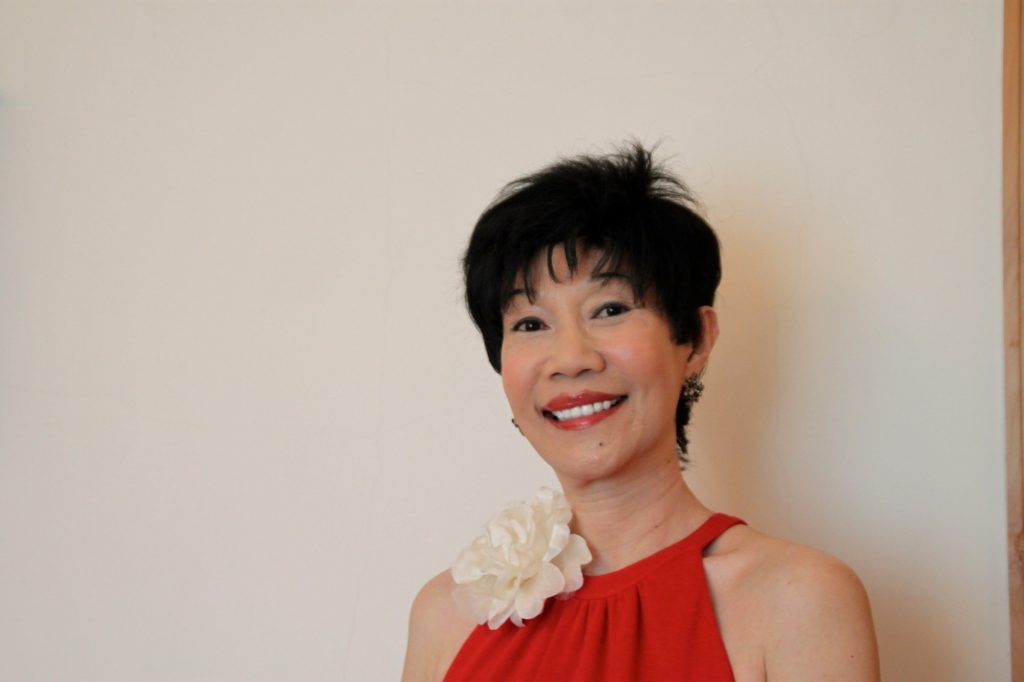Renowned author empowers women.
In celebration of International Women’s Day, doyenne.sg engaged with Catherine Lim on all things female empowerment.
Often described as the doyenne of Singapore literature, Catherine Lim has published 20 books, including short-story collections, novels and essays. As a child, I was drawn to her literature. Packed with wistful storylines, retro flashbacks and oriental wisdom, these were educational reads that rooted a curious Asian girl down into Singapore’s heritage.
“First of all, I’m not so sure I’m a ‘doyenne’ of Asian literature!” exclaims Catherine, flabbergasted at the moniker. Whoever coined this name for the vivacious author has yet to encounter her pragmatic, fluff-free approach, I thought.
Well in her seventies, this progressive lady’s mind is sharp as a tack. Adopting a modern outlook on gender equality, the former specialist lecturer easily engages in an intellectual debate, answering female-related questions with a good dose of cynicism.
Using exacting words, Catherine sheds light on the complexities surrounding women issues, dissecting factors with precision. It reveals her passionate, yet nurturing sides towards female advancement.
“I believe that the ability to speak properly, clearly and fluently is an attribute that evokes approval, respect and admiration universally – across gender, age, history and geography.”
Doyenne.sg: Shattering the glass ceiling, the #metoo movement has expanded its reach into the corporate world, politics, even sports in recent years. What does society need to do next?
Catherine: The most important thing to me is that, this expansion of the #metoo movement should truly reflect a shattering of the glass ceiling. It is not just a theoretical, academic or populist movement. Its gains should be real, measurable, and translated into actual improvements in pay, working conditions, career prospects and such.
If this is already happening, it is a very good thing indeed. We should allow the movement to continue its momentum, keep narrowing the gap in gender inequality.
If, on the other hand, it turns out to be just lip service and nothing is happening on the ground, women should draw attention to the falseness of it all, and fight it robustly.
D: What keeps you awake a night?
C: The matters that sometimes keep me tossing about in bed are the large existential questions: Who are we? Where did we come from? What is our place in the universe? Where did it come from?
Knowing all this, how should we behave towards each other? What should be our role in life?
D: In three words, how has your journey as an author been?
C: Wonderful, wonderful, wonderful.
D: If a woman cannot speak properly, how is she perceived?
C: I believe that the ability to speak properly, clearly and fluently is an attribute that evokes approval, respect and admiration universally – across gender, age, history and geography.
There are two reasons. First, language uniquely defines our human species. Second, communication with one another is the most fundamental of human interactions, carried on continuously, on a daily basis, as long as we live and function in a community.
Hence, the value of good speech, and by extension, good writing, cannot be underestimated. In today’s world, where English is easily the most widespread and accepted international language, a person who speaks, or writes English poorly and sloppily, is that much less respected.
“As a woman, I am grateful that the tide of change is irreversible, that the genie of change can never be pushed back into the bottle. It is out there nudging women on!”
D: Through generations, women were faced with changing opportunities and challenges. What were you presented with, which are hard for women to experience today?
C: If you are referring to the lack of opportunities or disadvantages that would be hard for women today to accept, I really can’t think of any serious impediments put in my way, because of my gender.
Maybe one thing, and it didn’t, and still doesn’t seem an issue to me: In a large family of 10 girls and four boys, the boys had a greater claim to parental attention, available financial resources, and educational opportunities.
Even if the girls showed greater talent, I don’t remember any resentment from us females. What would have been seen as discrimination was something that seemed universally accepted because it was part of the culture and tradition. Nobody gave it a second thought.
D: Did you wish you were born a man instead of a woman?
C: Good heavens. No! I’ve always been very comfortable as a woman. If I believed in reincarnation, I would want to come back as a woman once more.
D: Is the tide changing fast enough for women today?
C: In the fast-paced age that we’re in now, it would be natural for women to get somewhat impatient about being given more opportunities, greater recognition and appreciation.
As a woman, I am grateful that the tide of change is irreversible, that the genie of change can never be pushed back into the bottle. It is out there nudging women on!
But as women, we must remember that change doesn’t take place in a vacuum. It is in a complex, dynamic social setting with all that implies of unpredictability and shortcomings.
Change often takes time, old habits die hard, and patience is called for.
D: Are Asian women more empowered with opportunities?
C: As long as Asian women enjoy more opportunities, they are being empowered. I’m using the word ’empowered’ in a positive sense, that is, women are being enabled, especially through education, to get out of the disadvantages they were born into, to develop their abilities, to take their place in the world. I don’t particularly care to use the word in its negative sense, with its associations of gender aggression and triumphalism.
That said, I suspect that specific cultural and social considerations still hold the new Asian woman back. From what I sometimes observe about attitudes in society, some are fair-minded and reasonable, others downright irrational.
Some years ago, my Singaporean friends spoke disapprovingly of a colleague, a professional, who, upon being given a very good foreign posting, expected her husband to join her.
‘What?’ they said. ‘How can she expect him to give up his job?’ If it had been the other way round, where the woman had given up her job to join her husband, they would have shown unanimous approval.
If there is anyone in the family who has to make sacrifices, it is the wife who is expected to make them, not the husband. Generally, Asian women are still held back by such considerations.
“What I value greatly about the mind is its capacity for reason, logic, memory and consistency, to impose order on a complex, sometimes irrational and chaotic world.”
D: Is beauty still a woman’s greatest power?
C: It would be a very unusual thing for the modern day man and woman to rank beauty as the greatest requisite or criterion of female power. That would take us back to those archaic times of lustful emperors and beautiful opportunistic concubines!
We have to think of ourselves as more progressive than that. Today, the definition of female beauty goes well beyond the physical, it includes qualities such as civility, gentleness and grace.
D: Does anything scare you?
C: Some years ago, a relative was diagnosed with Alzheimer’s disease. I began reading up on that dreaded neurological disorder, and yes, it scared me stiff!
What I value greatly about the mind is its capacity for reason, logic, memory and consistency, to impose order on a complex, sometimes irrational and chaotic world. To lose these qualities would be a disaster indeed.
D: If your 20 year old self could see you now, what would she think?
C: I can imagine her saying, wow. How I’ve managed to survive and be happy in such a crazy world!
D: What do you hope more women can achieve in the next decade?
C: My unwavering, fervent hope is that every single female in the world will have the chance of an education, and if she shows talent, the opportunity to develop that to the fullest through higher education and suitable professions, for her eventual contribution to the society she lives in.
It seems to me that if the state fails to bring this about, it will be guilty of a serious dereliction of duty. We should rigorously ensure that the goal of universal education and opportunity for women will never be let out of sight.
This interview was made possible by The Singapore Writers Festival, one of the few multilingual literary festivals in the world, celebrating the written and spoken word in Singapore’s official languages – English, Malay, Chinese and Tamil.





